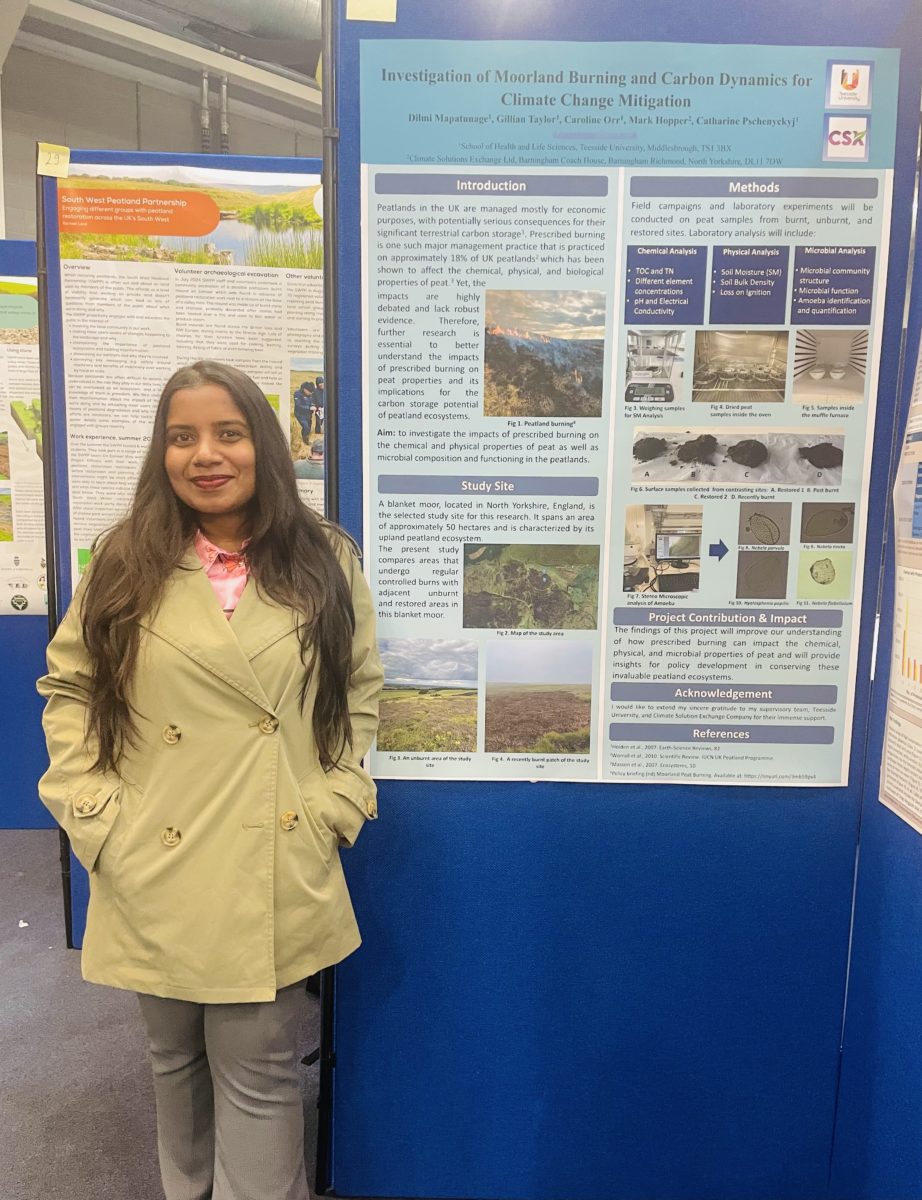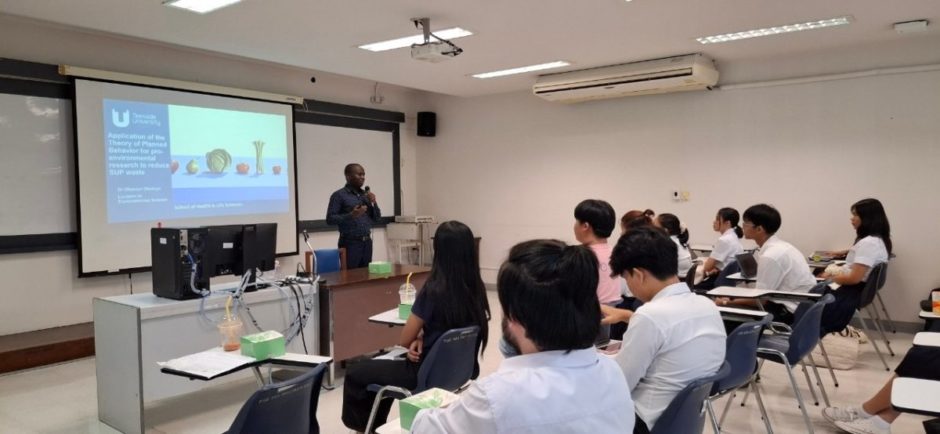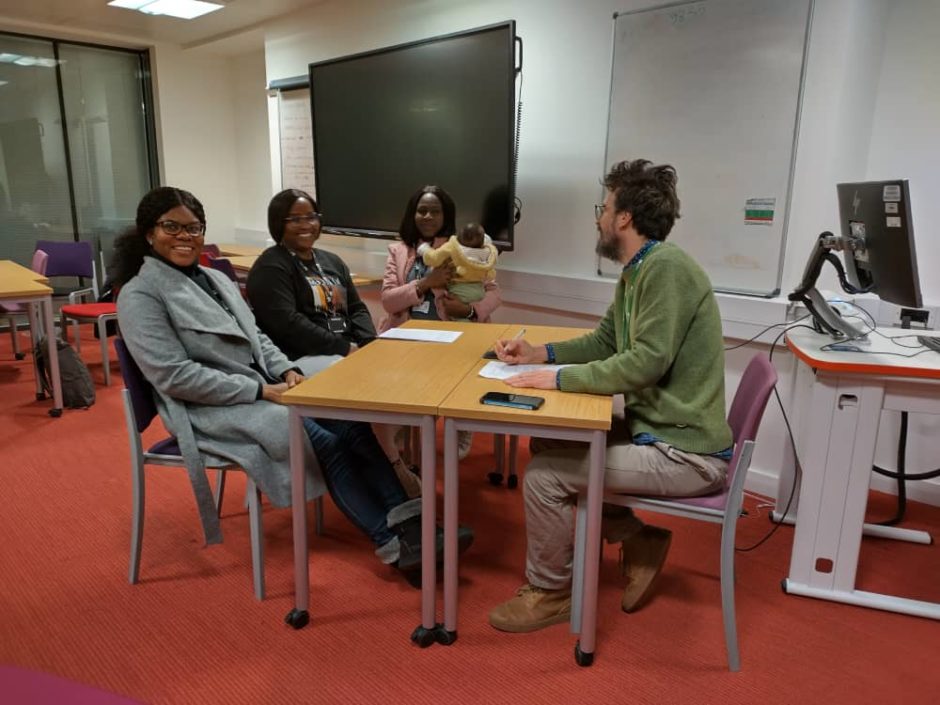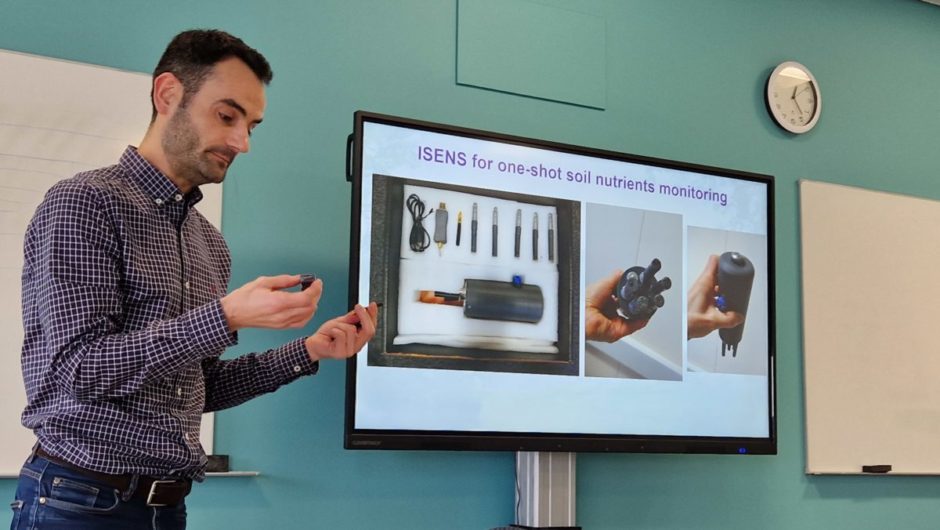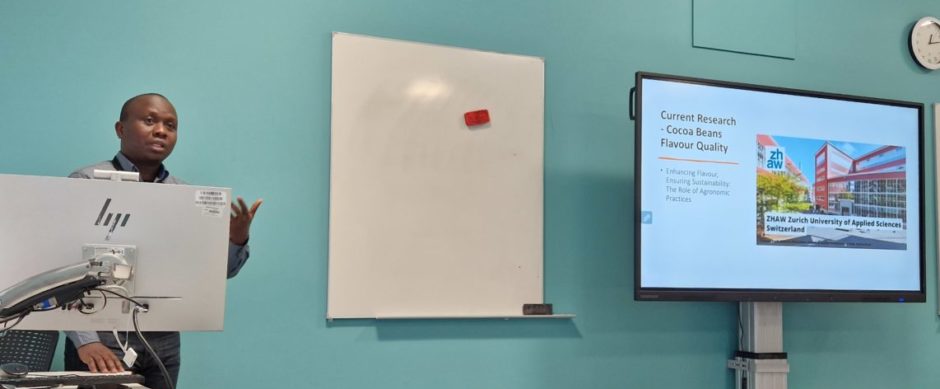PhD student Dilmi Mapatunage attended the IUCN Peatland Conference 2024, the largest gathering of 400 peatland experts, held in Aviemore, Scotland. The conference aims to showcase how the restoration of peatlands could pave the way towards transitioning into a green economy, and the role of healthy peatlands in supporting people and biodiversity by offering nature-based solutions.
The conference consisted of several plenary sessions on introducing the work of IUCN UK Peatland Programme and Peatland ACTION and delivering the key findings of the UK Peatland Strategy Report. Field visits to local peatland sites took place, to observe different peatland management and restoration techniques, combined with perfect weather and stunning views of the Scottish Highlands. Dilmi attended the Corr Riabhach demonstration site, which showcased peatland degradation and restoration efforts, such as erosion control and plant revegetation initiatives led by the United Nations. Dilmi presented a poster at the exhibition entitled, “Investigation of moorland burning and carbon dynamics for climate change mitigation”. Several delegates shared an interest in peatland burning and provided positive feedback and suggestions to refine and enhance the research.
The conference wrapped up with workshops and knowledge sharing sessions under different themes related to peatland management and restoration. Dilmi contributed to the ‘Translational palaeoecology and the art of collaboration’ workshop, engaging in discussions with a group of experts passionate about paleoecological records related to peatlands. Dilmi was inspired by the conference and looks forward to applying the feedback and suggestions received to further develop the research, and will attend more such meaningful conferences in the future.


